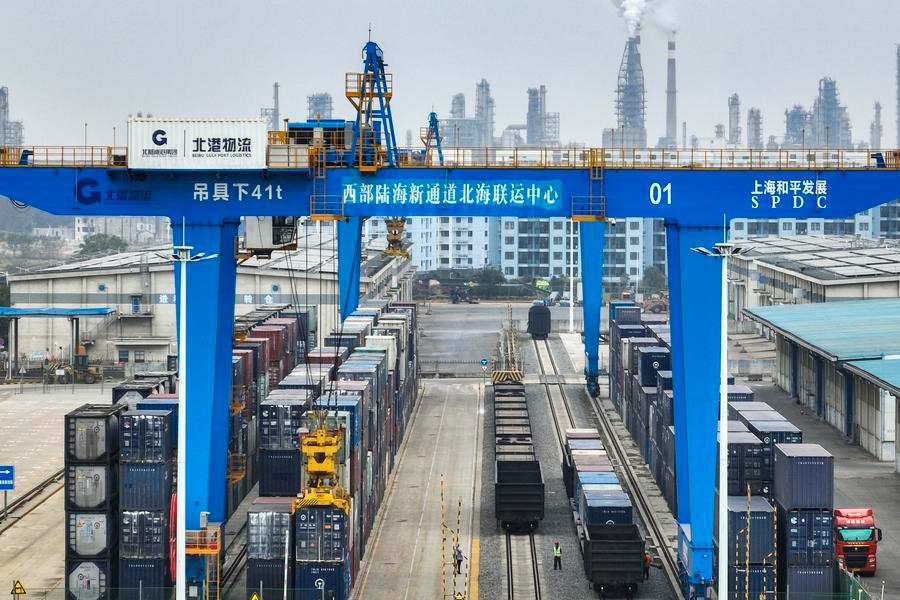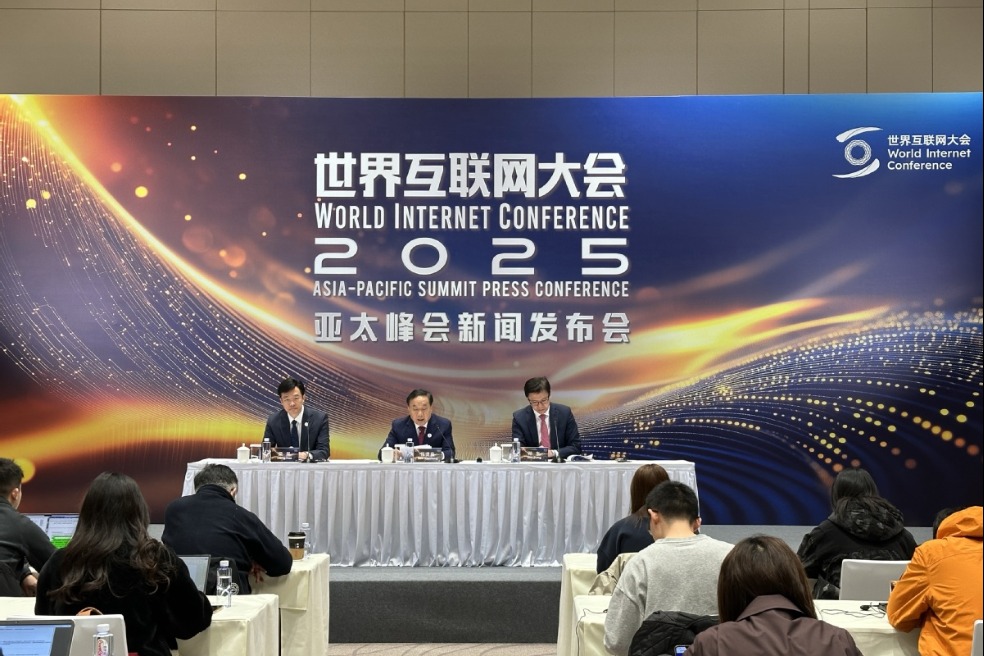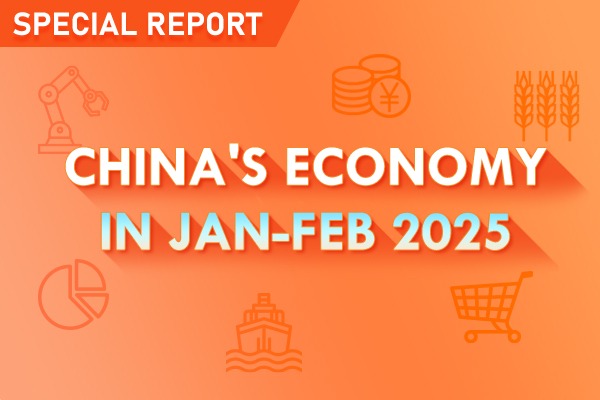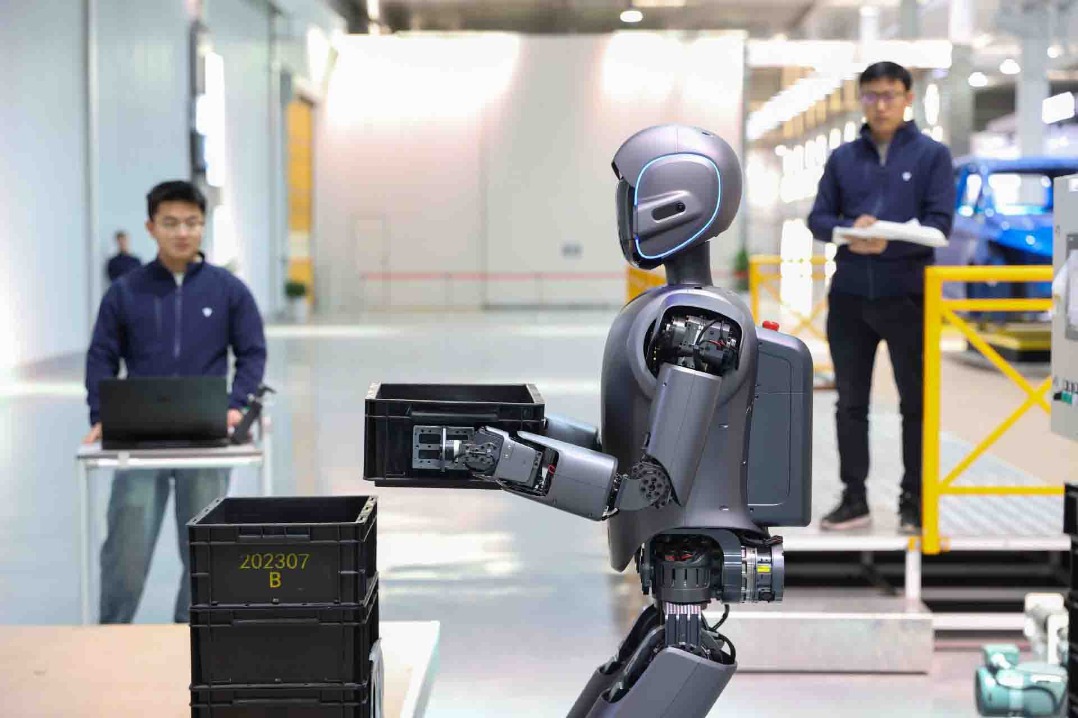AI to lift industrial upgrade, growth
Experts say Chinese tech companies must bolster innovation and achieve breakthroughs in AI to enhance nation's core competitiveness in strategic field, beat escalating trade protectionism


Depoux said as one of the technology leaders, China should take more responsibility to promote sustainable development of AI technology and tackle challenges for all human beings through global collaboration on governance.
Noting that AI is seamlessly integrating into every facet of industrial development and people's lives, more efforts should be made to strengthen international cooperation to build an open, collaborative and innovative AI industrial ecosystem, said Ouyang Rihui, assistant dean of the China Center for Internet Economy Research at the Central University of Finance and Economics.
He added that China's inclusive attitude in AI will also help promote the coordinated advancement of the global AI industry.
"China is one of the front-runners in generative AI development in the Asia-Pacific region, and is actively utilizing such cutting-edge technology to modernize various sectors and cultivate talent," said Wu Chun, managing partner of Boston Consulting Group Greater China.
Chinese enterprises have demonstrated unique competitiveness in the use of AI, Wu said.
"By leveraging its diverse and complete industrial system, world-leading infrastructure, large-scale reserve of scientific and technological talent, and cluster-based innovation ecosystem, China will definitely sustain innovation in breakthrough technologies and continue to promote achievements in fields such as AI adoption," Wu said.
According to BCG's research, the global AI adoption landscape presents a significant imbalance. Notably, only five economies are categorized as AI pioneers, and the Chinese mainland is among them.
As an AI pioneer, the Chinese mainland has gained a competitive advantage in skills, research and development, ecosystems and investment, and is taking the lead in patents and AI academic papers, the research said.
Wu added that industrial transformation and upgrading, coupled with continuous breakthroughs in innovative technologies, have created more development space and cooperation opportunities for foreign enterprises, allowing them to share long-term results and benefits through collaborative innovation.
"We have seen China's technological innovation rise rapidly over the past few decades, bringing breakthrough innovations in multiple fields," she said.
The open-source ecosystem and exploration of AI application scenarios are reconstructing the path of tech evolution, she added.
Chinese enterprises are accelerating the adoption of generative AI technology. According to a report from Accenture, 87 percent of surveyed Chinese companies plan to ramp up AI investment in 2025 — a year of rapid change — while 58 percent of the interviewed business executives in China feel that their enterprises' AI development is proceeding faster than expected.
Chinese enterprises' current investment in generative AI is mainly concentrated on core technology infrastructure and data, such as AI platforms, cloud and data management, and talent and skills development, Accenture said in the report.
The report also found that about 85 percent of the interviewed Chinese employees are currently using generative AI-based tools in their work, with 63 percent leveraging these tools for more than a year, and their main purpose is for data analysis. The survey interviewed 790 company executives and 687 employees in 22 industries across the Asia-Pacific region.
Yu Yi, technology lead at Accenture China, said that as companies strive to stay ahead and adapt to fast-changing markets, they are increasingly turning to AI technology to fuel their innovation efforts.
The proportion of Chinese companies stepping up investment and boosting the application of AI is also rising dramatically, Yu said.
He added that Chinese enterprises have sped up digital transformation in their globalization push, with more generative AI technologies having been adopted amid enterprises' efforts to expand their footprint in overseas markets.




































